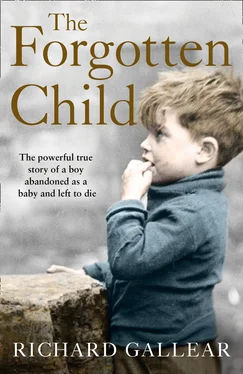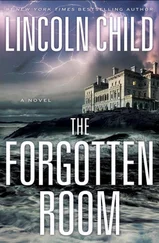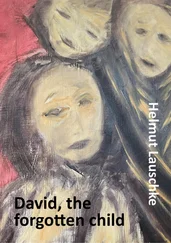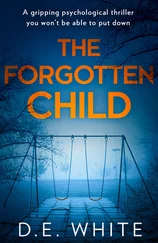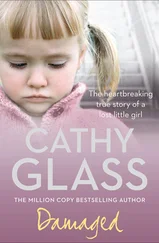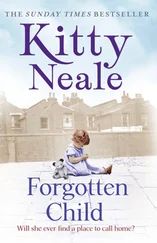We each had a small cupboard next to our bed for our clothes – it was a tiny cupboard with a drawer above it, where I kept my treasures. We didn’t have many clothes but if we needed something else, there was a store of second- or third-hand clothes upstairs, so one of the housemothers would go and get it for us. In fact, none of them were our own clothes. One of the other boys might wear a pair of shorts one day and I would be wearing them the next, but none of us minded.
In the winters, although the building was so large, it was hardly ever cold as we had huge iron radiators, probably Victorian, and they kept us snug. At night, we all had hot water bottles, just to make sure. If ever we still felt cold at night, we only had to say and someone would bring us an extra blanket.
Field House was good in so many ways. One of these was the way we were taught to mix and play with any disabled children we had with us. Whatever their disability, we always included them in our games and talked with them. Nobody ever made fun of them or left them out. Sometimes, their disability might have been the reason why they were put in care, but we all played together. There was one boy who couldn’t eat properly or use his hands and he used to dribble, but nobody said anything, he was just part of the group. If he couldn’t join in a game, one of us would always sit out with him to keep him company – it was the normal thing to do.
Every night, one of the housemothers would sit on my bed and read me a short story. It was a lovely part of bedtime. Some of them were very short stories, like Jack and the Beanstalk or Rumpelstiltskin , but often I wouldn’t hear the end of it because I had already fallen asleep. I suppose that was the idea! It certainly worked.
CHAPTER 3
September 1958 (nearly 4) – Grown into a fine boy – sturdy, adventurous and agile. There has been a very marked improvement in this child. Much happier. Laughs and plays and sings. Speech quite fluent. Has a lot of imagination. Co-operative and gets on well with other children. Plays very well by himself.
Field House progress report
There was always so much to do in the gardens of Field House that often we didn’t have any extra entertainments organised, though I do remember one occasion when a big van arrived and out jumped a man in multicolour clothes. He built a sort of booth out of wood and striped fabric on the lawn. We all gathered round and the housemothers organised us into rows on the grass.
‘We’re going to see a puppet show,’ one of them announced. ‘It’s called Punch and Judy.’
None of us knew what a puppet show was, but as soon as it got under way we were all laughing and shouting out at the puppets’ antics. We had a wonderful time and talked about it for days afterwards.
‘I liked the policeman best,’ said the boy next to me in my dormitory as we were getting ready for bed that evening.
‘I liked it when they threw the string of sausages,’ I replied.
I often took myself for walks around the gardens or to the vegetable gardens at the back of the house. One very still day, sitting in the cedar tree to the left of the house, I could hear the sound of trickling water. When I craned my head in that direction, I couldn’t see much, except for an ornamental gate in a wall, which hid what lay beyond. I had never been down that side of the house, so I clambered down and set off to find out what it was. A few days earlier, my housemother had read me a story about an explorer. I had asked her what an explorer was and she explained, ‘An explorer is someone who goes to new places and finds out what animals live there and what flowers grow there.’
‘Could I do that?’ I asked.
‘You could, if you want to, when you grow up.’
Well, I knew I wasn’t grown up yet, but now I felt just like an explorer, walking alone into an unknown place to see what might be there. I was so excited at the thought that I didn’t even consider whether I was allowed to go there.
When I reached the gate, it was closed, but I gave it a little push and, much to my surprise, it swung open, revealing a magical place, a beautiful garden so different from everywhere else. I walked in and looked around. It was a fascinating place. Everywhere I looked there was something new and different – things I’d never seen before. I could hardly believe it.
‘I went to a beautiful garden today,’ I told my housemother at bedtime that evening.
‘Did you really?’ she said with a smile, as if she wasn’t sure whether I was just imagining it.
‘Yes, I went through the gate in the wall and saw such beautiful things.’
She put her head on one side. ‘Tell me what you saw.’
‘I saw red trees and places where water was running and jumping up in the air. I saw strange flowers and lots of butterflies.’
‘Ah, that must have been the Japanese garden,’ she explained. ‘The red trees are called acers and the jumping water was a fountain. I think there are quite a few pools and small fountains in the Japanese garden.’
‘What does Japanese mean?’ I asked her.
‘It means from Japan. We live in a country called England, but right the way across the other side of the world there is a country called Japan.’
I don’t suppose I really understood what the world was, let alone places so far away, but the next day she brought me a round thing she called a globe to look at and she showed me where England was on the globe, and then she turned it and pointed at Japan.
‘You are allowed to go in the Japanese garden as long as you’re careful,’ she told me.
In the days and weeks that followed, I returned to the garden repeatedly. I walked around its carefully raked paths, between the ornamental cherry blossom trees, and watched the little waterfalls and fountains. I noticed different butterflies and caterpillars and several types of insects there too.
Against the background of trickling water, I heard the familiar buzzing of bees and a strange new sound. I followed where it came from and found a very peculiar-looking creature. I had never seen frogs before, let alone a toad, so I watched it closely, as it sat and watched me, like a staring match. This now became my favourite place. I suppose I could have brought some of the other children to see it, but I liked having it to myself for a little while.
Many years later, I found out that this was a very special Japanese water garden, designed by a famous woman called Gertrude Jekyll, so I suppose we were very honoured as small children to have that as part of our playground.
In the autumn at Field House there was a special treat – conker trees, as we called them. I loved running out in the mornings to inspect the newly fallen conkers from the chestnut trees. I would pick up the most beautiful ones I could find and polish them with my shirt or my woolly jumper, before putting them into my pocket. The housemothers made holes in some of the chestnuts for us and threaded lengths of string through them, so that we could play conkers.
‘Be careful,’ one of them warned. ‘Don’t swing them around or you might hurt each other.’ The housemothers showed us how to use them: ‘Take turns to try to hit the other person’s conker, like this.’ They stayed out with us to make sure we did it the right way.
I liked playing conkers with all the others, but what I liked best of all was polishing the ones in my pocket and taking them out at night to put in the little drawer in my bedside cupboard as additions to my collection. I was just learning to count, so the conkers were ideal and I counted them every night before I got into bed, like a miser counting his gold sovereigns.
From my earliest memories, I loved looking from the lawn, across the fields and up to the Clent Hills, so it was a great excitement every summer, for those of us who could walk far enough – a four-mile round trip – to have regular outings to those very hills. Sadly, my friend with the callipers couldn’t come on those days, but I know he had special treats at Field House while we were out and he was always as excited to tell us about his day as we were to tell him about ours.
Читать дальше
